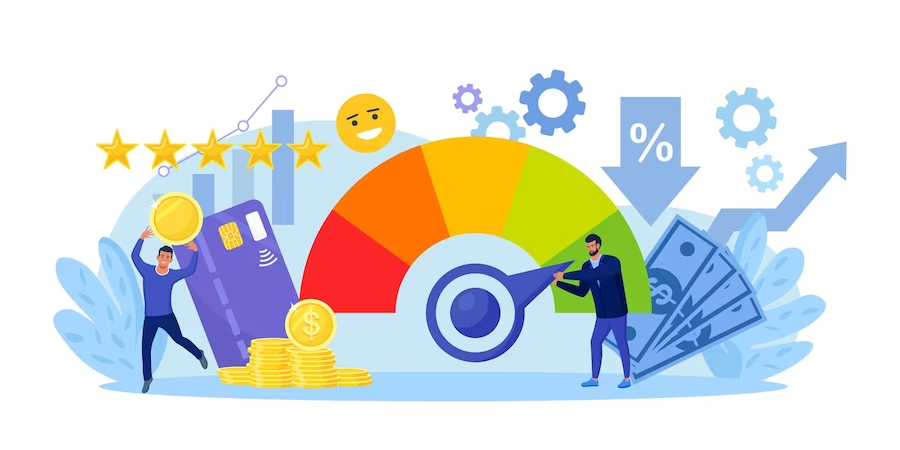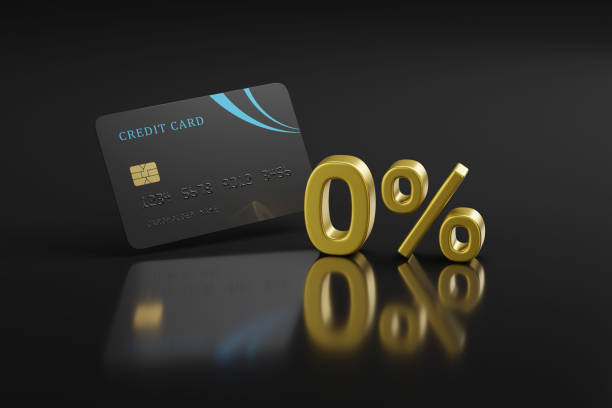Credit Tip Tuesday #116-Understanding And Avoiding Common Credit Pitfalls

Image Credit: Freepik
Do you have any experience with being denied credit because of your poor credit score? Or perhaps you are just starting to build your credit and want to avoid common pitfalls that could damage your score.
Either way, understanding how credit works and using it responsibly is crucial to make your life better financially.
In this blog, we will dive into some of the most common credit pitfalls people fall into, from carrying high balances to missing payments, and share tips on avoiding them.
By following these tips, you can maintain a healthy credit score and increase your chances of being approved for a credit card when needed.
What Is A Credit Pitfall?
A credit pitfall is a common mistake or misstep that can negatively impact your credit score. It can happen to anyone, even if you are generally responsible for your credit.
These pitfalls can include
- Carrying High Balances On Your Credit Cards
- Missing Payments
- Opening Too Many Credit Accounts At Once
The consequences of these actions can be severe, such as
- Higher Interest Rates
- Lower Credit Limits
- Being Denied Credit Altogether
The key to improving your credit health and securing your financial future is understanding these pitfalls and how to avoid them. But do not worry - we will walk you through some of the most common credit pitfalls and provide tips on avoiding them.
Without further ado, let's begin.
Credit Pitfall 1: Making Only Minimum Payments

Image Credit: iStock
One of the most common credit pitfalls is paying only the minimum amount on your credit card balance. While paying only the minimum amount may seem like a good idea, it can be a costly mistake.
Credit card companies make money off the interest charged on outstanding balances, so if you are only making the minimum payment, you are paying more interest over a more extended period. This can quickly add up and make paying off your credit card balance difficult.
Solution: Pay More Than The Minimum
Instead of making only the minimum payment, try to pay off as much of your balance as you can each month. If you cannot pay off the complete balance, you must pay more than the minimum due amount. This will help you reduce the interest you are charged and pay off your balance faster.
Credit Pitfall 2: Applying For Too Many Credit Cards
Another common credit pitfall is applying for too many credit cards. While it may be tempting to apply for every credit card offer that comes your way, it can be detrimental to your credit report.
When you apply to get a credit card, the credit card company checks your credit report, resulting in a hard credit history inquiry. Too many tricky questions can lower your credit score and make it more challenging to get approved for credit in the future.
Solution: Get A New Credit Card Only If It Is Necessary
Instead of applying for every credit card offer that comes your way, do your research and only apply for credit cards that fit your needs. Before applying, consider the interest rate, annual fee, rewards program, and other benefits.
Also, try to limit the number of credit cards you have and only apply for new credit when necessary.
Credit Pitfall 3: Carrying A High Balance

Image Credit: Freepik
If you carry a high balance on your credit card, it can also be a common credit pitfall. If you have a high balance, you are paying more interest, which can also negatively impact your credit score.
Credit utilization, or the amount of credit you use compared to your credit card limit, is an essential factor in your credit score. Carrying a high balance can increase your credit utilization and lower your credit score.
Solution: Maintain An Average Balance To Avoid a High-Interest Rate
Try paying your credit card balance in full each month to avoid carrying a high balance. If you are unable to stay on top of your balance, aim to deliver more than the minimum payment to reduce the interest you are charged. You could also consider transferring your balance to a card with a cheaper interest rate or a 0% introductory offer.
Credit Pitfall 4: Closing Credit Cards
Closing credit cards may seem like a good idea, especially if you are trying to be debt-free or simplify your finances. However, closing credit cards can be detrimental to your credit score. Closing a credit card reduces your available credit, which can increase your credit utilization and lower your credit score.
Solution: Use Credit Cards Responsibly
Instead of closing credit cards, consider keeping them open and using them occasionally to keep the account active. If you are trying to reduce your debt, focus on paying off the balance rather than closing the account. You can also consider consolidating your debt onto one credit card or a personal loan to make it easier to manage.
Credit Pitfall 5: Not Monitoring Your Credit Score

Image Credit: Freepik
Your credit score reflects your creditworthiness and may impact your chances of getting approved for credit and the interest rate you are offered. Not monitoring your credit score can be a common credit pitfall, as errors on your credit report or fraudulent activity can negatively impact your credit score.
Solution: Check Your Credit Score Regularly
To avoid this pitfall, checking your credit report and credit score regularly is essential. Each credit bureau in Canada offers a free credit report once a year. On the other hand, you can monitor your credit with a credit monitoring service as they send you an alert for your credit report or score changes.
Credit Pitfall 6: Using Credit To Pay For Necessities
Using credit to pay for necessities like groceries or rent can signify financial stress and a standard credit pitfall. It may appear to be a good idea at first glance, but it can lead to a cycle of debt and make it difficult to get back on track financially.
Solution: Create A Budget
If you find yourself using credit to pay for necessities, it is essential to address the root cause of the problem. This may involve creating a budget, finding ways to reduce expenses, or seeking assistance from a financial professional.
You can also consider alternative options with a lower interest rate, such as
- A Personal Loan
- Line Of Credit
Credit Pitfall 7: Not Having The Plan To Pay Off Debt

Image Credit: Freepik
Not having the plan to pay off debt can be a common credit pitfall. Without a plan, making progress and achieving financial goals can be challenging.
Solution: Make A Plan To Pay Off Your Debt
To avoid this pitfall:
- Set up a plan for paying off your debt.
- List all of your debts, along with their interest rates, to start.
- Make minimum payments on all other debts while concentrating on paying off the obligation with the highest interest rate first.
Once the first debt is paid off, move on to the next debt. You can also consider consolidating your debt onto one credit card or a personal loan to make it easier to manage.
Frequently Asked Questions (FAQs)
Q: How Can I Boost My Credit Score If It has Already Been Damaged?
Answer: Improving your credit score takes time, but there are steps you can take. Start by paying all your bills on time, reducing credit card balances, and disputing errors on your credit report. Consider consulting with a credit counselor or financial advisor for more personalized advice.
Further, getting approved for a traditional credit card may be challenging if you have a low credit score. However, a secured credit card can help you build your credit score. With a secured credit card, you must make a cash deposit, which serves as your credit limit. Therefore, get Plastk secured credit card, which can help you avoid common credit pitfalls and improve your credit score.
Related: Reasons to Get a Plastk Secured Credit Card
Q: Is It Okay To Close A Credit Card If I No Longer Use It?
Answer: It depends on the details of your scenario. Closing a credit card might lower your credit score because it reduces your credit history and raises your credit utilization ratio.
If you have an annual fee on the card or do not use it, consider keeping it open but not using it or canceling it and opening a new card to hold your available credit. Be sure to weigh the potential consequences before making a decision.
Q: What Should I Do If I Cannot Make My Credit Card Payments?
Answer: If you are struggling to make your credit card payments, contact your creditor as soon as possible to discuss your options. You might be able to negotiate a cheaper interest rate or payment plan. Consider consulting a credit counselor or financial expert to create a strategy for paying off your credit debts.
Final Takeaway
Being aware of credit card interest rates, payment deadlines, and your credit score can save you from debt and financial hardship.
By following simple tips, such as paying off your balance in full each month, keeping your credit utilization ratio low, and monitoring your credit report regularly, you can avoid common financial mistakes and pitfalls and build a strong credit history.
Remember, your credit score impacts many areas of your life, from buying a car or a house to getting a job or even renting an apartment.
So go forth and conquer your credit!
Do not let common credit pitfalls keep you from achieving financial stability. Knowledge and diligence will help you position yourself for a better financial future.


